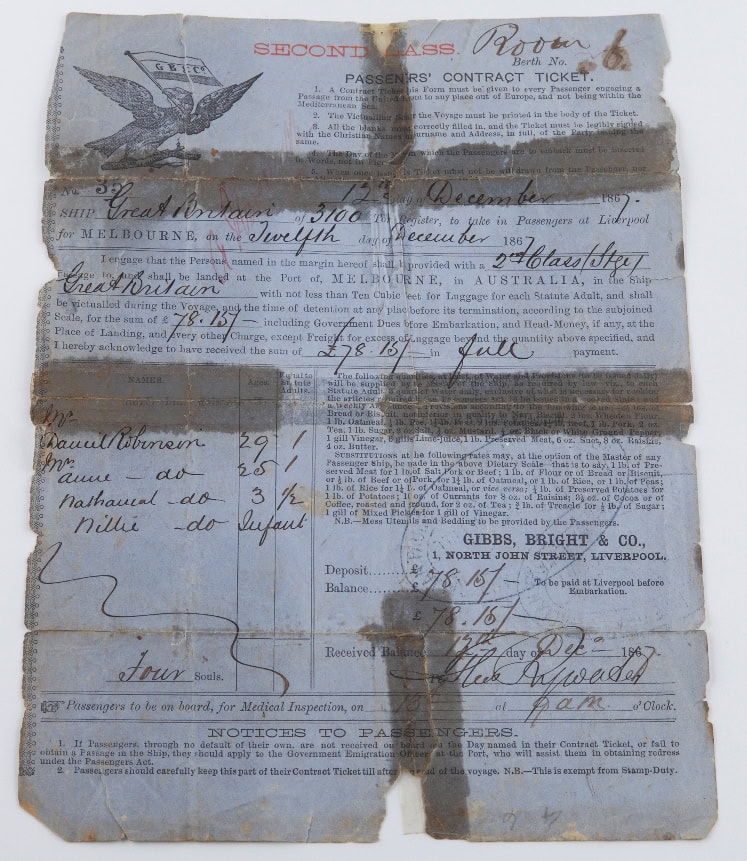- This ticket was bought by the Robinson family on the 12 December 1867 so that they could travel to Australia on the SS Great Britain.
- The family of four left Liverpool onboard the ship three days later, and arrived in Melbourne as a family of five on the 12 February 1868.
- Daniel and Annie Robinson travelled with their children Nathaniel, aged 3 and Millie who was only a year old. Annie gave birth to her third child Pilot Britain Robinson onboard the ship on the day it arrived in Australia.
- The second-class ticket cost them £78, 15 shillings and 7 pence, roughly equivalent to the annual salary of a skilled tradesman at the time.
- The family’s ticket was a type of contract signed between them and the ship’s owner and details the level of provisions (food and water) they would receive while travelling on the SS Great Britain.
The Story
What your ticket got you
In 1855 the British Government introduced a Passenger Act that listed the conditions and provisions that had to be provided by law to passengers travelling long distances on ships. This meant that the owners of the SS Great Britain, Gibbs Bright Company, had to give at least what was listed in the Passenger Act to all passengers travelling on the ship, it also stated that the provisions had to be “of good quality”.
The Robinson family’s ticket lists the food and water that they would be given every week of their journey. Listed by weight in pounds (lbs) and ounces (oz), it includes items such as a 1lb of flour, 2lb of potatoes, 1 ¼ lbs of beef, which would have been salted and 1lb sugar. The provisions would have been turned into simple meals like salted meats with rice or potatoes. There are no fresh fruit or vegetables on the list as over a 60-day voyage, these would have gone bad. However, all passengers were given a small amount of lime juice in their ration to help keep them healthy.
The contract also lists 3 ½ lb of bread or biscuit, the bread would have been made in the onboard bakery and would have been given to the first and second-class passengers, all other passengers and crew would have got biscuits. Sadly, this wouldn’t mean 1.5kg of chocolate digestives, the biscuits were in fact hard ship’s biscuits which are made from only flour, salt and water then baked until hard.
As fresh water was in limited supply on the ship, everyone was only allowed 3 quarts of water a day, approximately 3 litres. They had to use this for drinking as well as any washing of themselves or clothes they might want to do. Unsurprisingly, most chose to use their portion for drinking rather than cleaning!
While food and water were provided, passengers in steerage had to bring their own mess utensils (plates, cutlery etc.) and bedding.



